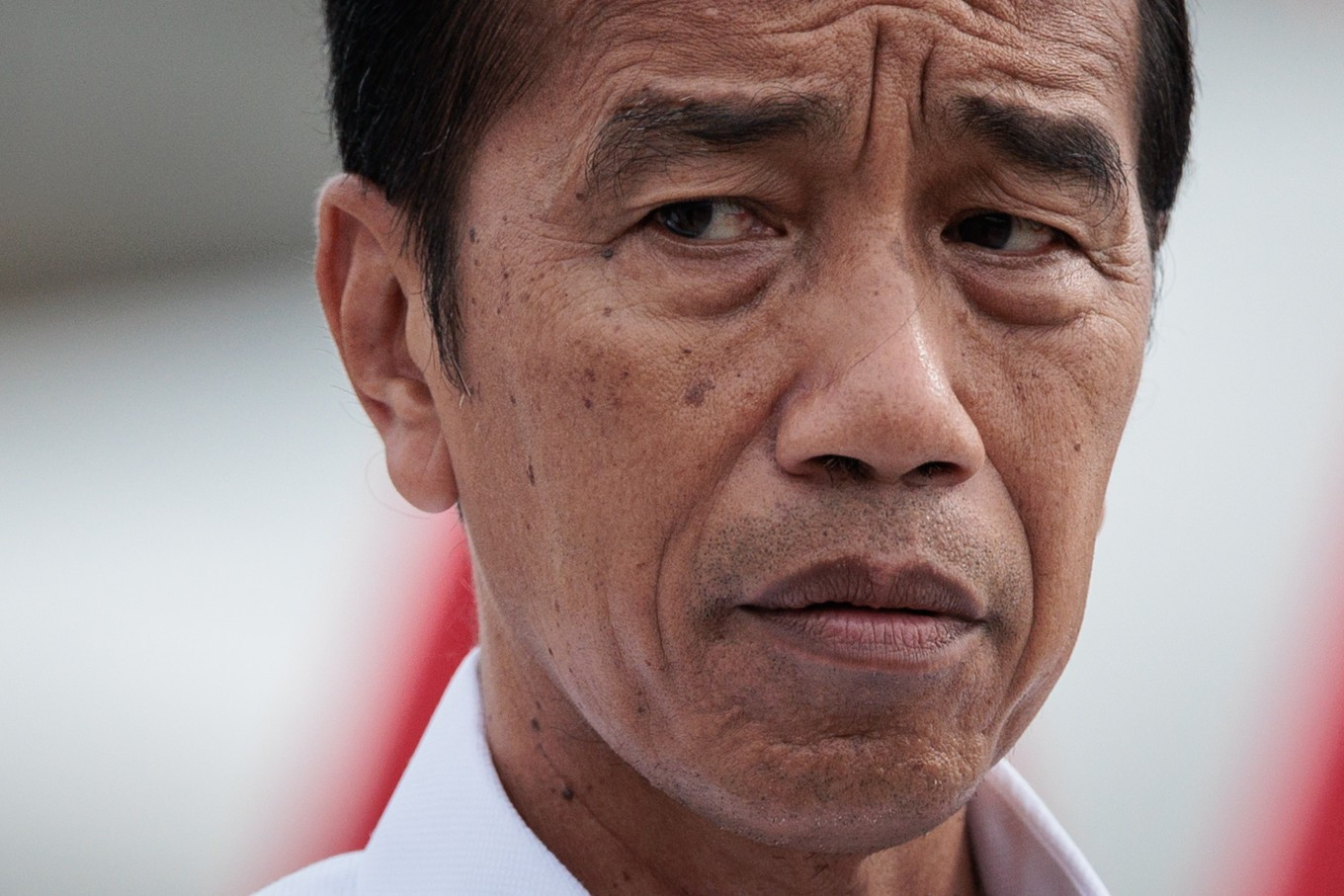News
Jokowi, PSI forge mutually beneficial alliance
Tenggara Strategics July 31, 2025 President Joko 'Jokowi' Widodo speaks with the media after the departure ceremony of the National Disaster Management Agency's (BNPB) mission to deliver humanitarian aid, 60 tonnes of medical and hygiene supplies on two planes, to Egypt for Palestinian refugees and Sudan at Halim Perdanakusuma International Airport in Jakarta on April 3, 2024. (AFP/Yasuyoshi Chiba)
President Joko 'Jokowi' Widodo speaks with the media after the departure ceremony of the National Disaster Management Agency's (BNPB) mission to deliver humanitarian aid, 60 tonnes of medical and hygiene supplies on two planes, to Egypt for Palestinian refugees and Sudan at Halim Perdanakusuma International Airport in Jakarta on April 3, 2024. (AFP/Yasuyoshi Chiba)
Former president Joko "Jokowi" Widodo and the Indonesian Solidarity Party (PSI) have formed an alliance that aims to advance their respective interests in elite politics. While the PSI seeks to secure seats at the House of Representatives in the next general election, Jokowi appears to be carving out a political role so he can continue to wield influence after his presidency, particularly after he was dumped by his former party, the Indonesian Democratic Party of Struggle (PDI-P).
Originally scheduled for May, the 2025 PSI national congress took place on July 19-20 in Surakarta, Central Java, Jokowi’s hometown and the city that helped catapult him to the country’s highest office. For the venue, the party chose Graha Saba Buana, which is adjacent to Jokowi’s private residence, signifyign the deep political ties between the PSI and the Widodo family.
During the congress, Jokowi’s youngest son Kaesang Pangarep was reelected as PSI chairman for the 2025-2030 term with 65.28 percent of the vote. While the party said its election involved a transparent mechanism based on the principle of one person, one vote, PDI-P politician and former PSI member Guntur Romli claimed that Kaesang's victory was predetermined a month prior.
The congress also saw the PSI unveil a new logo: a redheaded elephant, which it says represents strength, composure and dignity in Javanese philosophy.
Jokowi attended the congress, publicly endorsing the PSI and reportedly planning to chair its board of advisors. He expressed optimism that the PSI would become a dominant political force by 2034, despite its struggle to gain a foothold in past elections: it garnered 1.89 percent in 2019 and 2.8 percent in 2024, both below the 4 percent legislative threshold.
Kaesang's entry into the PSI just before the 2024 election failed to secure any House seats, prompting the party's further efforts to leverage Jokowi's high public approval rating of 75 percent.
However, Jokowi's statement that the PSI should not be controlled by members of the political elite or certainly families, which seems to have been aimed at parties like the PDI-P, drew criticism for its hypocrisy, given that his son holds the PSI chairmanship. Amien Rais, a former speaker of the People’s Consultative Assembly, warned this could erode public trust, while PDI-P lawmaker Aria Bima pointed out that Jokowi joining the PSI advisory board would contradict the party's vision of openness.
While the attendance of President Prabowo Subianto at the PSI congress signaled a cordial relationship, some of his early policy decisions, such as not holding this year's Independence Day celebrations in Nusantara, indicate a potential divergence from his predecessor’s agenda. Prabowo has also not taken action against a call to impeach Vice President Gibran Rakabuming Raka, Jokowi’s eldest son.
Gibran, who has been unaffiliated with any political party since his dismissal from the PDI-P last year, was also among the key attendants at the congress.
For Jokowi, strengthening ties with the PSI appears to be a deliberate strategy to retain political relevance after his second and final presidential term ended last October. Following his successful effort to secure the vice presidency for Gibran alongside Prabowo, Jokowi's backing Kaesang in the PSI leadership indicates the further entrenchment of dynastic politics in Indonesia’s political party landscape, particularly with an eye on future elections.
The PSI-Widodo family alliance represents a strategic mutualistic symbiosis in national politics. The PSI gains prominency vis-à-vis Jokowi, whose high public approval and political capital can boost its electoral prospects as well as legitimacy. In return, Jokowi secures a platform to maintain post presidential influence, circumventing his former party's attempts to sideline him.
This dynamic highlights the increasing role of political families and individual influence in shaping Indonesia's political future, as both sides seek to maximize their power and navigate the evolving political landscape.
What we've heard
Kaesang's reelection as PSI chair was a foregone conclusion, according to a politician close to the party. This source revealed that all contenders were aware of the outcome before the national congress. "Kaesang’s competitors were just participants," they said.

